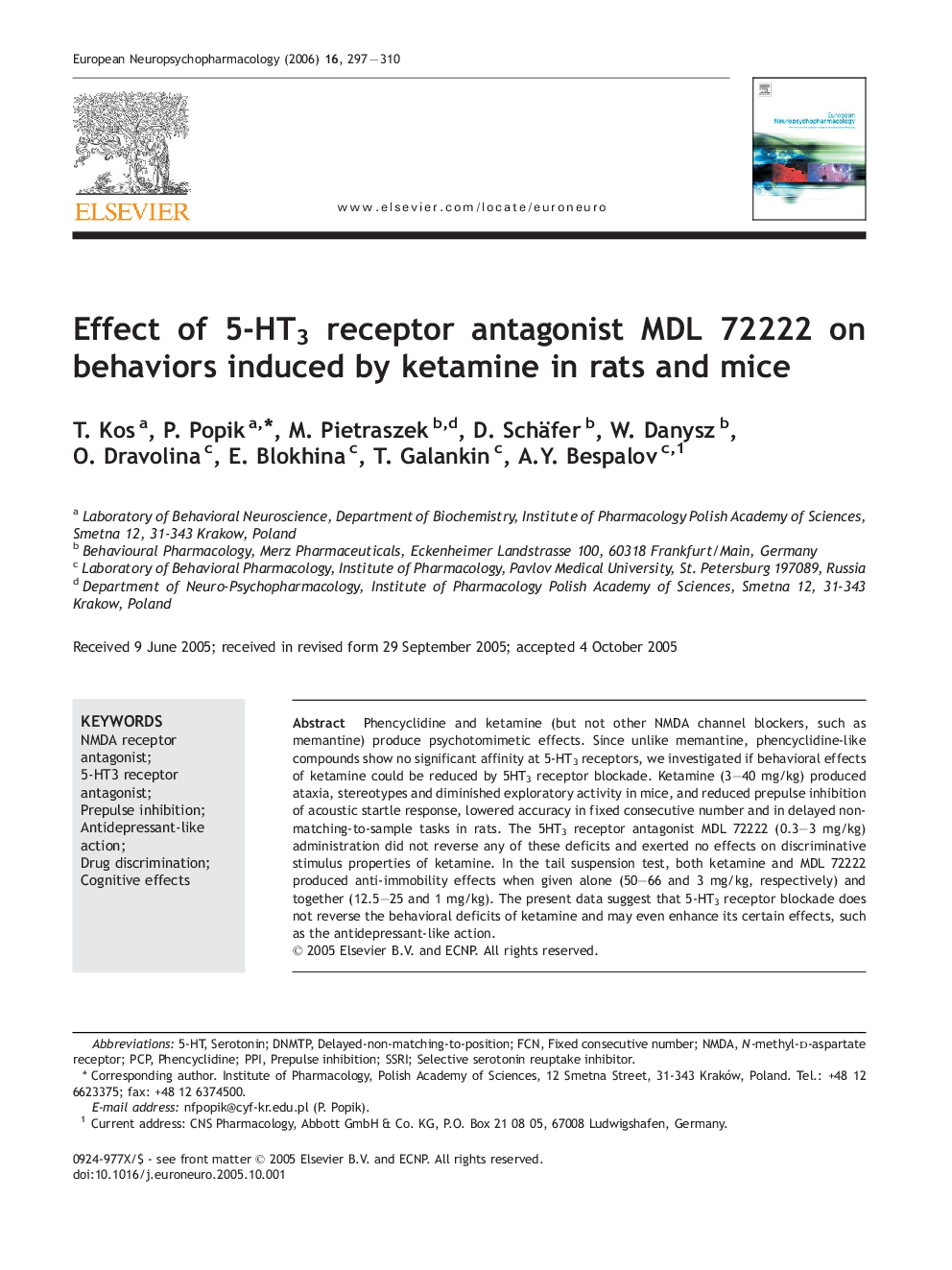| Article ID | Journal | Published Year | Pages | File Type |
|---|---|---|---|---|
| 322254 | European Neuropsychopharmacology | 2006 | 14 Pages |
Phencyclidine and ketamine (but not other NMDA channel blockers, such as memantine) produce psychotomimetic effects. Since unlike memantine, phencyclidine-like compounds show no significant affinity at 5-HT3 receptors, we investigated if behavioral effects of ketamine could be reduced by 5HT3 receptor blockade. Ketamine (3–40 mg/kg) produced ataxia, stereotypes and diminished exploratory activity in mice, and reduced prepulse inhibition of acoustic startle response, lowered accuracy in fixed consecutive number and in delayed non-matching-to-sample tasks in rats. The 5HT3 receptor antagonist MDL 72222 (0.3–3 mg/kg) administration did not reverse any of these deficits and exerted no effects on discriminative stimulus properties of ketamine. In the tail suspension test, both ketamine and MDL 72222 produced anti-immobility effects when given alone (50–66 and 3 mg/kg, respectively) and together (12.5–25 and 1 mg/kg). The present data suggest that 5-HT3 receptor blockade does not reverse the behavioral deficits of ketamine and may even enhance its certain effects, such as the antidepressant-like action.
